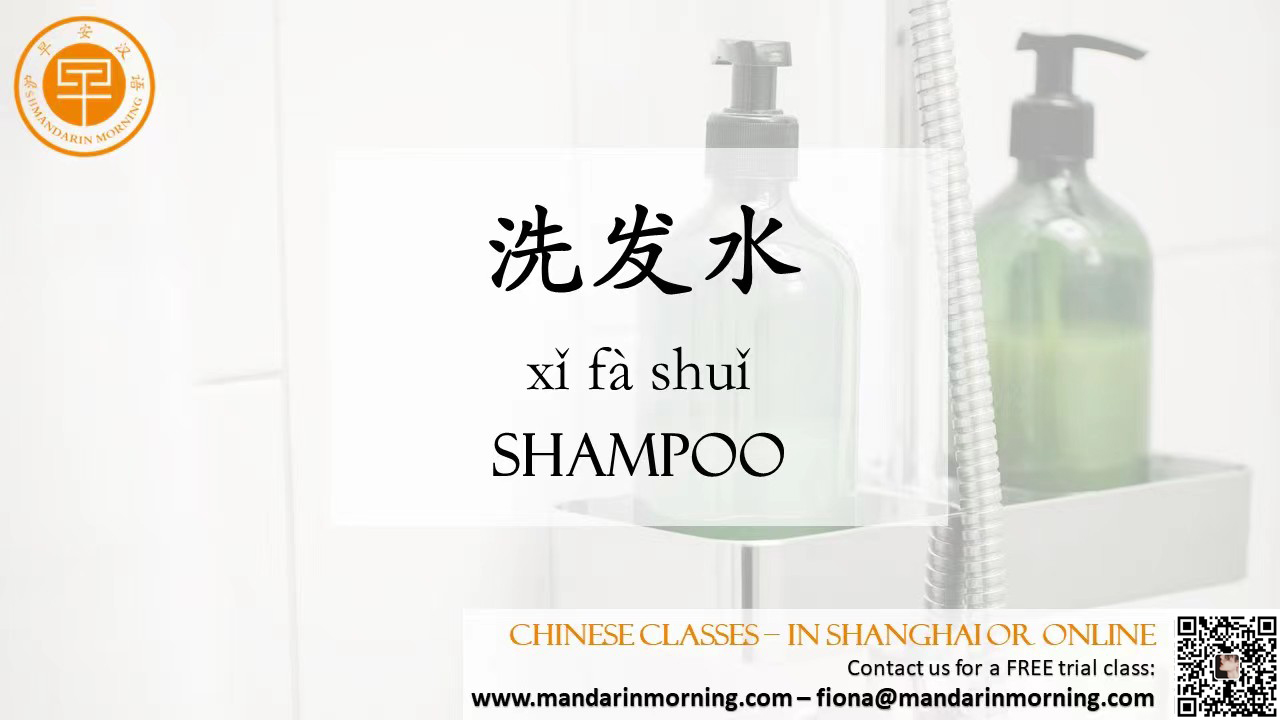| Although shopping for basic groceries and toiletries sounds easy, until you actually walk into a store and realize that you never learned the word for shampoo and can’t tell which of the 30 options on the shelves is the bottle you need! But, never fear, if you want to take a shower in Chinese, it is as easy as learning a few new vocabulary words.  Basic Shower Vocabulary Shampoo: 洗发水 (xǐfàshuǐ), 洗发露 (xǐfàlù) Conditioner: 护发素 (hùfàsù) Body Wash: 沐浴露 (mùyùlù) Loofah: 丝瓜络 (sīguāluò) Hair dryer: 吹风机 (chuīfēngjī) Towel: 毛巾 (máojīn) Face wash: 洗面奶 (xǐmiànnǎi) Moisturizer: 护肤霜 (hùfūshuāng) Soap: 肥皂 (féizào) To bath: 洗澡 (xǐzǎo) To shower: 淋浴 (línyù) The key to learning to take a shower in Chinese is to really use the small details in life to learn useful Chinese that you can connect immediately to your life. The most common way to announce that you are going to take a shower in Chinese is to say “我要去洗澡了.” (I’m going to go shower/take a bath, wǒyào qù xǐzǎo le). Although in English, people tend to more specifically say “I’m going to go shower” or “I’m going to take a nice relaxing bath tonight,” 洗澡 (to bath, xǐzǎo), as opposed to 淋浴 (to shower, línyù) is the most common word to refer to any form of washing up. Where is the body wash? 沐浴露在哪里? mùyùlù zài nǎlǐ I’m going to go bathe/shower! 我要去洗澡了。 wǒyào qù xǐzǎo le She showered twice a day. 她每天洗两次淋浴。 tā měitiān xǐ liǎngcì línyù Shampoo your hair and dry it. 用洗发液洗洗头发然后擦干。 yòng xǐfāyè xǐxǐ tóufa ránhòu cāgān After a bath or shower rub down the whole body with a loofah. 在洗澡或淋浴后,用丝瓜络按摩身体。 zài xǐzǎo huò línyù hòu yòng sīguāluò ànmó shēntǐ |